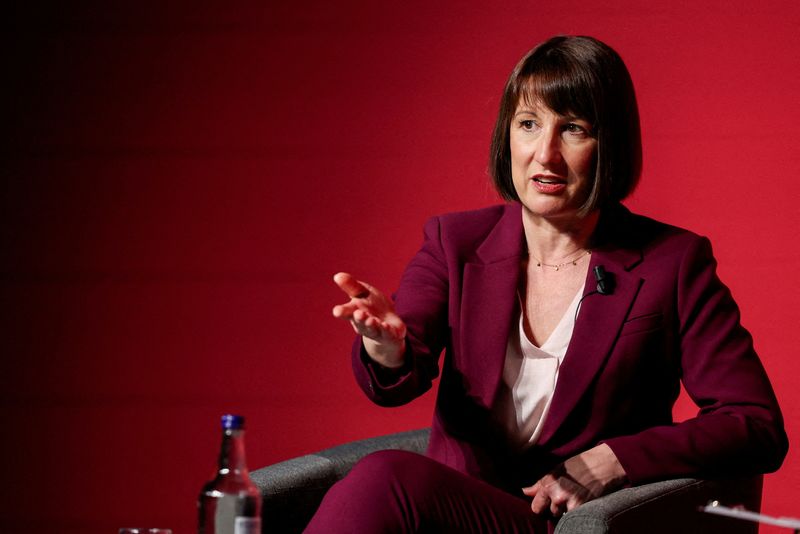LONDON (Reuters) -British Finance Minister Rachel Reeves will likely free up 10 billion to 20 billion pounds' ($13.1 billion - $26.2 billion) worth of room to borrow for capital investment by tweaking the technical definitions that underpin the government's fiscal rules, the Guardian reported on Tuesday.
Reeves will present the Labour Party's first budget on Oct. 30 since it swept to power at an election in July, promising to get Britain's economy growing more quickly through careful fiscal management and state spending on infrastructure that encouraged more private-sector investment.
The Guardian reported, citing unnamed allies of Reeves, that she was likely to exclude the losses incurred by the state from the Bank of England's past asset-purchase programs from the way debt was calculated.
Reeves would also exclude any extra borrowing used to set up new public institutions, the report said.
The Treasury did not respond directly to whether the debt definition would be changed or how. They referred back to Reeves' past comments that the benefits of public investment should be accounted for alongside the costs. Full details would be set out at the budget statement, the department said.
Last month, she suggested she would give the government more leeway to borrow, but has not set out details of how she would do that. Economists see a range of options, and the Treasury has not indicated a preference.

The possibility of higher borrowing has attracted the attention of financial markets given Britain's already-high debt levels and dire warnings from Reeves about the health of the public finances her government inherited.
($1 = 0.7634 pound)